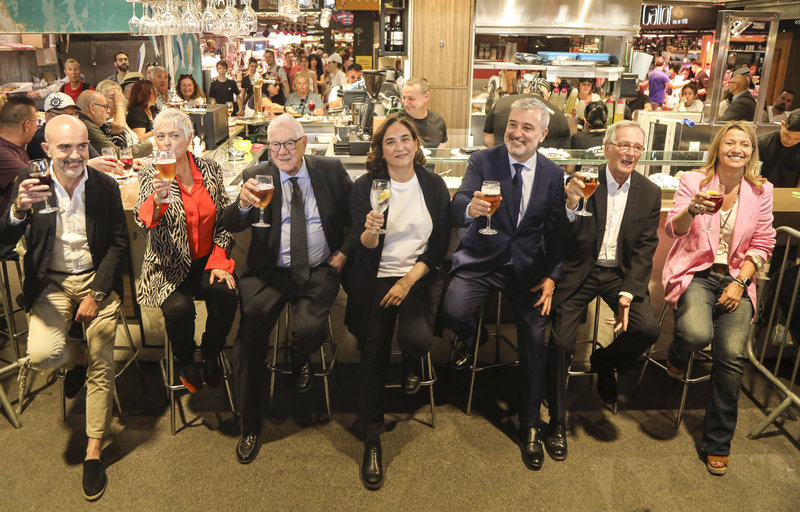Long-term resident
BABY BLUE
MUNICIPAL ELECTIONS HERE ARE NOT THE SMALL DEAL THEY ARE IN SO MANY OTHER COUNTRIES
It’s all over now, as of May the 28th last. The debates, the banners, the hoardings, the voting. In short, the municipal elections, in both Catalonia and Spain. Barcelona now has a Mayor who belongs to a pro-independence party, whereas the other three Catalan capitals (Tarragona, Lleida, and Girona) have slipped back into the constitutionalist fold of the Catalan Socialist Party (PSC) which takes most of its orders from the mother party, the PSOE, currently in power in Madrid. It should be pointed out that municipal elections here are not the small deal they are in so many other countries: no sooner had Franco started pushing up daisies than town councils great and small, especially in Catalonia, laid the groundwork which made a working democracy possible, and are still taken very seriously. A week or so before the elections, there was a televised debate on Catalan public television between the candidates from parties already represented in City Hall. The then Mayor, Ada Colau (49) was placed between two of the oldest candidates, the now current Mayor Xavier Trias (76) and Ernest Maragall (80), whose mayorship was snatched away at the last moment in the 2019 elections by an unusual pact between the left-wing Colau and Manuel Valls, the former prime minister of France, who was then running as a mayoral candidate in Barcelona. On screen, Colau looked like a beatifically smiling niece stuck between two curmudgeonly great-uncles. Also in the studio were the candidate for Ciutadans, a harrowed looking woman who has now vanished from the political world along with the rest of her party, and the PSC representative, Jaume Collboni, who spent most of his time criticising - in a supremely smug way - Colau’s achievements (of which he, as part of her coalition, had been an eager co-achiever). That left Daniel Sirera - who looks like a vertically challenged Michael Stipe with pencilled eyebrows - the candidate for the Popular Party (PP), which is big in whole swathes of Spain but little more than testimonial in Catalonia; and a virtually unknown person called Eva Parera who fronts a small party called Valents (The Brave), a continuation of the party founded by the aforementioned Manuel Valls, who abandoned it in 2021. These candidates spent most of the time hurling improvable statistics at each other. The ’anti-nationalists’ (PP, Valents and Ciutadans) also insisted on speaking a halting mixture of Catalan and Spanish (something which normal citizens do not usually do).
And now that the municipal die has been cast, the pro-independence parties (there are three: centre-liberal, left-wing, and far left) held their own or got good results in a majority of towns and villages, which is remarkable given that they have been at each other’s throats for the last couple of years. On the other hand, the far-right party Vox crept into almost every major town council, albeit with just one or two councillors. Vox was founded by disgruntled members of the PP who, incredibly, felt that their ultraconservative, ultrapatriotic party was too moderate and not ’Spanish’ enough. Vox wishes to ’regenerate’ Spain (which, among other things, means eliminating the political autonomy of bilingual countries like Euskadi and Catalonia) and is Islamophobic, anti-feminist, anti-abortion and ultra-catholic; it may well find itself in power in both municipal, autonomous and even state-wide governments, given that the PP will need it to obtain an absolute majority (as is now the case in the Balearics and Valencia). Should Catalonia find itself facing a state government run by two hard-line right-wing parties which only a minuscule minority of Catalans vote for, things might get interesting. Again.
OPINION


